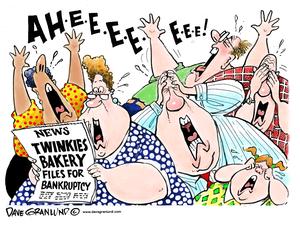 “To everything there is a season, and a time for every purpose under heaven,” said the son of David in the biblical book of Ecclesiastes. But did you ever wonder what the official purpose behind having a bankruptcy system was?
“To everything there is a season, and a time for every purpose under heaven,” said the son of David in the biblical book of Ecclesiastes. But did you ever wonder what the official purpose behind having a bankruptcy system was?
An creditor who has just had an account file for bankruptcy might be tempted to snarl that the purpose is to “torture” small businesses. A hyper-aggressive attorney prowling for cases (that’s not us now, mind you) might say it is the elimination of every debt, large or small, for any reason whatsoever, and with no cost to anyone. Ha!
The fact is that bankruptcy is legal and sanctioned by the government. It is a way to give people and companies a way to reorganize their finances and to re-enter the stream of commerce.
The U.S. Supreme Court has said in cases going all the way back to 1934 that the central purpose of the bankruptcy law is to “provide a procedure by which certain insolvent debtors can reorder their affairs, make peace with their creditors, and enjoy ‘a new opportunity in life and a clear field for future effort, unhampered by the pressure and discouragement of pre-existing debt.’”
And that my friends, is the true purpose of bankruptcy in the United States.
(Merrimack Valley residents who need specific bankruptcy advice can give me a call at 978-975-2608 and set up a free consultation at my office on Route 114.)
By Doug Beaton








